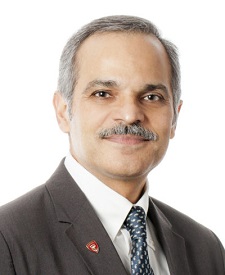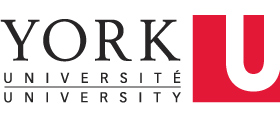
 By Amir Asif, Vice-President Research & Innovation, York University
By Amir Asif, Vice-President Research & Innovation, York University
From virtual health assistants to diagnostics to surgical procedures – artificial intelligence (AI), and AI-based technologies are transforming health services and health care delivery. While AI has proven itself to be a valuable tool to advance the practice of medicine, it presents new societal challenges, particularly around issues of racial bias and inequity.
These challenges include negative outcomes for Black patients, who were less likely to be waitlisted for a kidney transplant by an AI algorithm, or the potential absence of Indigenous knowledge in the datasets used by computer scientists, which could lead to AI models that are culturally insensitive or discriminatory.
York University is creating positive change in health research through a holistic and interdisciplinary approach, examining how AI can meet health care demands and improve outcomes. York researchers are leading Canada in the socially responsible creation and adoption of AI innovation to ensure AI evolves in a way that improves health outcomes for all people, regardless of race.
As a leader in this field, York offers some of the top ranked health-related programs worldwide, including one of the country’s top-ranked Kinesiology & Health Science programs, as well as standout programs in Global Health, Health Studies, Neuroscience, Health Informatics, and Health Policy, Management and Digital Health. The University has a strong history of collaboration with community-based health care and research partners, and is home to a well-established network of scientific, engineering, societal, ethical, and legal researchers whose work in ethical AI, healthcare technologies and health policy and governance intersect across all 11 Faculties.
As an emerging area of investigation, the issue of racial bias in AI and machine learning is a disturbing phenomenon. Recent research published in The Lancet and co-authored by Laleh Seyyed-Kalantari, assistant professor in York’s Lassonde School of Engineering, found an AI model could accurately predict a patient’s race solely based on chest X-rays – a shocking feat, and a capability it was never programmed to have.
Further research by Seyyed-Kalantari and her colleagues in Nature Medicine has shown AI models in medical imaging are unfair and have a higher underdiagnosis rate for historically underserved groups. The findings raise concerns about the unknown consequences of AI could create for patient care, and to what extent biases exist in algorithms elsewhere.
Seyyed-Kalantari’s work in responsible AI is compelling, and it’s exemplary of the unique expertise found at York. Last year, the University deepened its collective expertise with the launch of the Centre for AI & Society. With 43 research Chairs in Health and counting, York continues to increase its knowledge mobilization and technology-transfer in health-related areas, including a virtual reality tool that provides assessment and rehabilitation for balance disorders, and a computerized vision system to assess mobility decline in aging patients.
With technological progress, the use of AI and machine learning in the health care system is on track to increase over the next several years and intensify well into the future. Society will need the dedicated minds of researchers, thinkers, and innovators to understand this rapidly changing world and harness AI’s many benefits for health and wellbeing. York University is preparing for such a future.
Next spring, York will open its Markham Campus with flagship programs in core themes of entrepreneurship and technology, including an undergraduate degree in Digital Technologies and a graduate diploma in Biotechnology, among others. York’s proposed new School of Medicine will offer an education that pulls knowledge and teachings from the University’s health-specific research hubs and offer instruction on the latest technology to improve health care delivery and outcomes with a focus on community healthcare.
With seemingly endless medical applications, AI could dramatically improve human health. It’s interdisciplinary research – like the kind found at York University – that will drive positive change, optimize the benefits of AI while mitigating the risks, and generate the innovative approaches needed to ensure that the health care system of the future is built to benefit us all.

York University is a Member of Research Canada: An Alliance for Health Discovery and Sponsor of the Parliamentary Health Research Caucus Buffet Luncheon Artificial Intelligence and Machine Learning: Researching an Innovative Future for Human Health Care. Visit rc-rc.ca to learn more.
